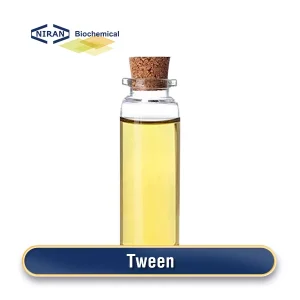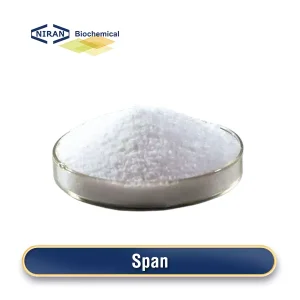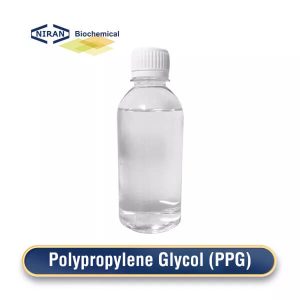EMULSIFIERS MANUFACTURER
We are a quality emulsifier manufacturer, aiming to provide you with the perfect solution to improve the quality of your products.
Our emulsifier’s features:
- Food Grade
- Powder, Liquid, Granular Forms
- Powder Particle Size Ranges from 20~80 Mesh
- Organic Sources (Plants and Animals) and Chemical Synthesis
EMULSIFIERS
Emulsifiers in food are designed to blend materials like oil and water that usually resist combination. Widely utilized in the food industry, these compounds are key to enhancing product texture, ensuring stability, and extending the shelf life of a wide array of food items.
FEATURED PRODUCTS
TYPES OF EMULSIFIERS
A diverse array of emulsifiers is employed within the food sector to enhance the texture, ensure stability, and prolong the shelf life of numerous products. Originating from both organic sources such as plants and animals, as well as being chemically manufactured, these emulsifiers are integral to the production of quality food items. The choice of an emulsifier depends on the product’s formulation, processing conditions, and desired final characteristics.
Lecithin (E322)
- Source: Soybeans, egg yolks, and sunflower seeds.
- Uses: Chocolate, bakery goods, margarine, and convenience foods. Lecithin is renowned for its capacity to seamlessly merge components that usually resist blending.
Mono- and Diglycerides of Fatty Acids (E471)
- Source: Both animal fats and vegetable oils or can be synthetically produced.
- Uses: Widely used in breads, cakes, creamy spreads, and ice cream. They contribute to enhancing texture and prolonging shelf life.
Sorbitan Esters (Span)
- Source: Chemical modification of sorbitol and fatty acids.
- Uses: Cake mixes, whipped toppings, and non-dairy creamers. They are effective at stabilizing air bubbles and emulsifying fats with water.
Polysorbates (Tween)
- Source: Chemical reaction of sorbitan esters with ethylene oxide.
- Uses: Ice cream, salad dressings, and vitamin oils. Polysorbates are used to improve consistency and prevent separation.
Sucrose Esters
- Source: Sugar and fatty acids.
- Uses: Baked goods, beverages, and confectionery. They enhance texture, act as preservatives, and improve shelf life.
Glycerol Monostearate (GMS)
- Source: Glycerol and stearic acid (from both animal and vegetable fats).
- Uses: Bread, ice cream, and whipped cream. GMS is known for its ability to create a uniform texture and to retain moisture in baked goods.
Diacetyl Tartaric Acid Esters of Mono- and Diglycerides (DATEM)
- Source: Tartaric acid, acetic acid, and fatty acids.
- Uses: Bread and other baked goods. DATEM is used to strengthen dough by interacting with gluten.
Propylene Glycol Esters
- Source: Propylene glycol and fatty acids.
- Uses: Bakery products, toppings, and coatings. They help to improve texture and stability.
Sodium Stearoyl Lactylate (SSL) and Calcium Stearoyl Lactylate (CSL)
- Source: Lactic acid and stearic acid.
- Uses: Bread, pancakes, and tortillas. These emulsifiers strengthen the dough and improve volume and texture.
APPLICATIONS OF EMULSIFIERS
The emulsifier’s primary function is to facilitate the mixing of oil and water, two substances that typically do not mix well, and to stabilize emulsions, ensuring that food products remain homogeneous and appealing. The versatility of emulsifiers allows food manufacturers to achieve desired product characteristics, including texture, appearance, and shelf life. Here are some key applications of emulsifiers in the food industry:
Bakery
- Function: Improve dough elasticity, volume, and texture; extend shelf life by reducing staling; enhance crumb softness.
- Examples: Bread, cakes, muffins, and pastries.
Dairy
- Function: Stabilize fat emulsions in milk; improve the creaminess and viscosity of ice creams and yogurts; prevent separation in cheese spreads and cream.
- Examples: Ice cream, yogurt, cheese spreads, and whipped cream.
Confectionery
- Function: Ensure a smooth texture in chocolate; prevent fat bloom in chocolate bars; improve the mouthfeel of low-fat spreads.
- Examples: Chocolate, candy bars, and chewing gum.
Margarine and Spreads
- Function: Emulsify water and oil; improve spreadability and stability; prevent separation.
- Examples: Margarine, butter blends, and vegetable spreads.
Beverages
- Function: Stabilize emulsions in flavored milk drinks and juices; improve mouthfeel in non-dairy milk alternatives.
- Examples: Flavored milk, juice beverages, and plant-based milk alternatives.
Salad Dressings and Sauces
- Function: Stabilize oil-in-water or water-in-oil emulsions; improve texture and pourability; prevent separation.
- Examples: Mayonnaise, salad dressings, and ketchup.
Processed Meats
- Function: Bind fat and water for improved texture; enhance juiciness and mouthfeel; reduce cooking losses.
- Examples: Sausages, hot dogs, and deli meats.
Frozen Foods
- Function: Control ice crystal formation in ice cream and frozen desserts; improve the freeze-thaw stability of frozen meals.
- Examples: Ice cream, frozen desserts, and frozen meals.
Snack Foods
- Function: Improve texture and crispiness; extend shelf life by reducing fat uptake during frying.
- Examples: Potato chips, extruded snacks, and popcorn.
Nutritional Supplements and Functional Foods
- Function: Enhance the bioavailability of vitamins and minerals; stabilize fortified beverages and energy bars.
- Examples: Fortified drinks, energy bars, and dietary supplements.
FAQ
What are emulsifiers?
Emulsifiers are substances that help to mix two ingredients that normally don't blend well together, such as oil and water. They are extensively utilized to ensure the stability of emulsions, enhance the texture, and increase the longevity of food products.
Why are emulsifiers used in food?
Emulsifiers are used in food to:
Improve product consistency and stability.
Enhance texture and mouthfeel.
Prevent separation of ingredients.
Improve shelf life.
Facilitate the incorporation of air, enhancing the volume and lightness of products like whipped cream and mousse.
What are some common emulsifiers used in the food industry?
Some common emulsifiers include:
Lecithin (Emulsifier 322)
Mono- and diglycerides of fatty acids (Emulsifier 471)
Sorbitan esters (Span)
Polysorbates (Tween)
Sucrose esters
How are emulsifiers labeled in food products?
Emulsifiers are usually listed by their common name (e.g., lecithin) or by an E-number (in Europe) on food labels. For example, mono- and diglycerides might be listed as E471.
Are there natural alternatives to synthetic emulsifiers?
Yes, there are natural alternatives to synthetic emulsifiers, including:
Lecithin (from soybeans or eggs)
Gum arabic
Agar
Pectin
These natural emulsifiers are often used in organic and clean-label products.




-300x300.webp)
-300x300.webp)